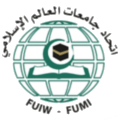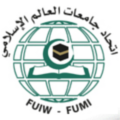Objectives
- To encourage Islamic university research to promote the religious, cultural and civilizational causes of the Islamic Ummah.
- To promote scientific and technological cooperation among Member Universities.
- To link university education outputs to the industrial sector.
- To enhance the Islamic value reference in university research trends.
- To entrench the values of belonging and to immune research against alienation, deviation and extremist tendencies.
- To upgrade science and technology capacities of scientific research centres.
- To redress stereotypes against Islam and Muslims.
- To raise university awareness about the fundamentals of the Islamic Ummah as well as new scientific and technological developments.
- To raise awareness about threats to natural resources.
- To develop science capacities and human resources as part of the Islamic vision calling for enhancing the value of labour and contributing to sustainable development.
- To upgrade quality and accreditation in order to compete at the international level while safeguarding Islamic specificities.
- To publicize the contribution of Islamic universities and their outstanding academic figures to the human civilization.
- To address current issues, problems and challenges from an Islamic perspective.
- To develop and update educational systems as well as teaching methods and tools in such a way as to effect excellence and creativity.
- To enhance cooperation and complementarity between Member Universities and to exchange expertise between their teachers and staff working in their fields.
Motives
Being aware of the technological advances, knowledge changes and ever-increasing challenges of the third millennium which is characterized by a growing need to develop Islamic university education, keep abreast of the current progress and update its core functions: research, training and teaching;
In view of the decline of scientific research in the Islamic world in comparison to developed countries, as underlined by Dr. Abdulaziz Othman Altwaijri, Director General of ISESCO, Secretary General of the Federation of the Universities of the Islamic World, in his address to the third Islamic Conference of the Ministers of Higher Education and Scientific Research held in Kuwait (19-21/11/2006) wherein he pointed to this alarming situation having huge impact on the present and future of the Islamic world;
Based on the objectives enshrined in the Charter of the Federation of the Universities of the Islamic World aiming at “enhancing the level of scientific research in all fields, exchanging research findings, taking interest in applied research works which address the problems of the Muslim Ummah, and linking research topics with comprehensive development”, and on the resolutions and recommendations of the conferences and meetings urging specialized organizations and institutions to redouble efforts and develop the implementation mechanisms in order to upgrade research capacities in the Islamic world;
Considering the great number of prizes dedicated to various fields and in which university education has not been given sufficient care; The Federation of the Universities of the Islamic World intends to dedicate each year a prize titled “the FUIW Prize for Academic Research Papers”.
Axes
- Islamic university education and the issues of quality and accreditation from an Islamic perspective.
- Effective plans to guarantee environmental, food and industrial security.
- Islamic university education, sustainable development and the labour market.
- New vision for the development of scientific and electronic education.
- The patterns of new universities and the knowledge society.
- Means to upgrade the capacities of scientific research institutions.
- The optimal use of educational technology in Islamic university education.
- Enhancing the role of youth in science and technology.
- University competences and the requirements of Islamic civilizational revival.
- Furthering interactions between academia and industry.
- University education in the service of the issues of the Islamic Ummah.
- Renewable energy and sustainable development issues.
- University education and contemporary problems: towards an authentic Islamic vision.
- Developing and updating funding sources and means in Islamic university education.
- University scientific research: development sources and tools.
- Towards an Islamic pedagogy for university education.
- Means to develop innovation systems in scientific research.
- Towards an efficient methodology for teaching Arabic for non-Arabic speakers.
- Quranic script and university education: the civilizational and cultural role and the scientific and technological challenges.
- Challenges of university education in the third millennium.
- Globalization, cultural diversity and dialogue among cultures and civilizations: action and interaction.
- Towards a contemporary Islamic enlightening discourse in university education.
Implementation procedures
- The General Secretariat shall determine each year the subject of the Prize in the light of the educational needs of university education and the new challenges.
- The GS shall communicate the subject and terms of the Prize to the Member Universities.
- The Prize shall be announced in various media.
- A scientific board shall be set up from among specialists to examine the submissions. This board shall be constituted of: the Federation of the Universities of the Islamic World, ISESCO and a university president, a university teacher specialized in the subject of the Prize, a teacher specialized in curricula and another teacher specialized in the language in which the research has been written.
- The winner shall be awarded a cash amount and an appreciation certificate during an official event of the Federation of the Universities of the Islamic World.
- Competition shall be over all books, research papers and studies produced by the nominees during their careers.
- The Prize winner shall make a presentation on the added value of his/her works.
- The Prize shall be devoted each year to a specific subject closely related to the axes of the Prize.
Terms of the Prize
- Clarity, authenticity and originality of the vision.
- Relevance of the study to the subject of the Prize.
- Coherence of methodology and objectivity of analysis.
- Documentation of texts and opinions.
- Soundness of the writing structure.
- Drawing upon the religious constants of the Ummah and openness onto positive new developments.
- Language of the Prize: the Federation’s working languages: Arabic – English – French.
Conditions for nomination :
- Nomination should be submitted in Arabic, English or French by one of the Members of the Federation of the Universities of the Islamic World.
- The works nominated should be original, of high quality, already published and beneficial to humanity;
- The official nomination letter should include the nominee’s full name and address, reasons for his/her nomination and a detailed account of his/her achievements.
The nominee’s letter should contain :
- The nominee’s curriculum vitae together with a list of his/her published works.
- List of nominated works.
- Six (6) copies of the nominated research works (not more than three (3) research works).
- A recent, coloured and high-resolution photo of the nominee (15×10 cm).
- Form of general information to be filled in by the nominee (enclosed).
- Nominations, research works and required information should be submitted at the following address:
| General Secretariat of the Federation of the Universities of the Islamic World |
| ISESCO headquarters |
| Avenue des F.A.R. Hay Riyadh P.O. Box 2275. Post code 10104 |
| Rabat – Kingdom of Morocco |
| Phone : (212) 537 56 60 52/53 |
| Fax : (212) 537 56 60 12/13 |
| Email : |

